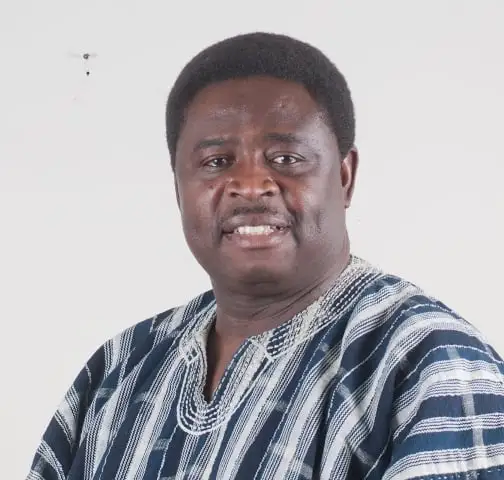In a detailed discussion on the Inter-Party Advisory Committee (IPAC), Co-convener of the Alliance for Revolutionary Change (ARC), and former CPP Flagbearer Dr. Abu Sakara Foster provided a scathing critique of the current structure and operation of the IPAC.
Dr. Sakara questioned the purpose of the IPAC, describing it as an institution that has deviated from its intended function, and has instead become a platform to endorse the pre-determined positions of the Electoral Commission (EC).
Dr. Abu Sakara did not mince words in his critique of the IPAC, expressing frustration with its perceived role as an institution that rubber-stamps decisions made by the EC.
He suggested that some smaller political parties have been co-opted into blindly supporting the EC’s positions without presenting substantial arguments.
“If the whole purpose of the IPAC is to simply endorse the EC position and not reconsider the EC position, just because we are able to mobilize some parties to support your position, then it will be a sham.”
Dr. Abu Sakara Foster Co-convener of the Alliance for Revolutionary Change (ARC), and former CPP Flagbearer
His concerns are rooted in the fact that the IPAC is expected to provide a platform for deliberation and redress of concerns regarding the electoral process.
Instead, he perceived it to be a space where dissenting voices, especially independent candidates, are muted or excluded entirely from the conversation.
The Exclusion of Independent Candidates
One of Dr. Sakara’s central criticisms revolved around the exclusion of independent candidates from IPAC. He argued that the very composition of the IPAC, which excludes these candidates, undermined its legitimacy and purpose.
Independent candidates, he pointed out, are required to meet the same electoral qualifications as party-affiliated candidates, yet they are denied representation in this crucial forum.
“If it is inter-party, then it means that independent candidates are excluded in their representation. And what is the purpose of the meeting? It is to look at the procedures, processes, and rules governing the contest of the election. And are the independent candidates, not contestants? Did they not pay the same fee as everybody else? Why should they not have representation in those meetings?”
Dr. Abu Sakara Foster Co-convener of the Alliance for Revolutionary Change (ARC), and former CPP Flagbearer
This exclusion, according to Dr. Sakara, lead to a significant flaw in the IPAC’s structure, making it less representative and failing to address the full spectrum of electoral stakeholders.
He emphasized that independent candidates play a vital role in the democratic process and their exclusion compromises the integrity of the forum.
The Problem with “Rent-a-Party” Politics
Dr. Sakara also raised concerns about the involvement of smaller political parties in IPAC, accusing them of aligning with the EC without presenting reasoned arguments. He emphasized; “The use of ‘rent-a-party’ participants to blindly support its position without cogent arguments is a disgrace and not a debate.”
In his view, this practice undermined the democratic nature of IPAC, as it creates a space where only the EC’s perspectives are endorsed while dissenting opinions are disregarded.
Dr. Sakara extended his critique beyond IPAC, addressing the broader issue of electoral standards.
He expressed concerns about the qualifications of some candidates who participate in presidential elections, arguing that there should be higher standards for both party-affiliated and independent candidates.
According to him, the current system, which allows any individual who can pay a fee to contest, lowers the quality of the electoral process.
“We cannot pride ourselves on having a multi-party election just because we allow any port body to contest. For the election, there should be some real standards to make sure that we do not reduce this to a level where any Tom, Dick, and Harry who has a 100,000 can contest.”
Dr. Abu Sakara Foster Co-convener of the Alliance for Revolutionary Change (ARC), and former CPP Flagbearer
He called for stricter regulations to ensure that only serious candidates with the necessary political infrastructure and organizational network can run for office.
This, he suggested, would help improve the quality of leadership and prevent the dilution of the electoral process with unqualified candidates.

Towards Inclusivity and Real Debate
Dr. Sakara concluded his critique by emphasizing the need for real debate within IPAC.
He advocated for a forum where participants, whether from political parties or as independent candidates, engage in meaningful discourse about the electoral process.
According to him, the current structure falls short of this goal, as it excludes important voices and relies on partisan support rather than reasoned argumentation.
“You should come with cogent arguments about my position, and why you think that it has no significant impact on the outcome of the election, not simply to harass somebody else because they have a different opinion and support the EC automatically.”
Dr. Abu Sakara Foster Co-convener of the Alliance for Revolutionary Change (ARC), and former CPP Flagbearer
For Dr. Sakara, the IPAC must evolve into a space where substantive discussions take place and where the EC’s decisions are open to challenge and reconsideration. Without these changes, he warned, the IPAC risks becoming a platform that merely rubber-stamps the EC’s decisions, leaving little room for meaningful reform or inclusive participation in Ghana’s electoral process.
Dr. Abu Sakara’s criticism of the IPAC highlights several key issues with its current structure and function.
His call for the inclusion of independent candidates, the rejection of “rent-a-party” politics, and the need for higher standards in presidential elections point to a larger conversation about the future of Ghana’s electoral system.
If the IPAC is to fulfill its purpose as a forum for genuine electoral dialogue, it must embrace inclusivity, reasoned debate, and meaningful standards for all electoral contestants.
READ ALSO; Amerado Narrates Basis For Release of ‘Date Rush’ Song




















